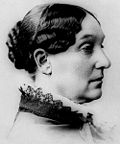- Oregon Ballot Measure 36 (1996)
-
Ballot Measure 36 of 1996 increased the U.S. state of Oregon's minimum wage from $4.75 to $6.50 over a three-year period. The measure was approved by voters in the 5 November 1996 general election, with 769,725 votes in favor and 584,303 votes against.[1] The measure was placed on the ballot as a result of initiative petition.
Proponents of the measure included labor unions, the Oregon State Council of Senior Citizens and some religious groups. They argued that the previous minimum wage was not a living wage, and that many minimum wage earners were trying to support families – see family wage.
Opponents included businesses that employ minimum wage earners, among others. They argued that increasing the minimum wage would increase consumer prices, and increase unemployment as employers would be able to hire fewer workers. They also pointed out that the U.S. Congress had just passed a (smaller) increase to the federal minimum wage.
In 2002, voters passed Measure 25, which again increased the minimum wage. Measure 25 also tied future minimum wage increases to inflation.
See also: List of Oregon ballot measuresSee also
References
External links
- State Voter's Guide page for Measure 36--includes the text of the measure, and arguments for and against it
Topics in Oregon legislation Crime and sentencing Capital punishment · Measure 11 (1994) (mandatory minimum sentencing) · Measure 40 (1996) etc. (victims' rights) Abigail Scott Duniway was instrumental in establishing women's right to vote in Oregon.
Abigail Scott Duniway was instrumental in establishing women's right to vote in Oregon.
Elections and voting Gay rights Environment Land use Health care Minimum wage Measures 36 (1996), 25 (2002)Taxation Tax revolt · Measure 5 (1990) (landmark tax law) · Measures 47 (1996) and 50 (1997) (adjusted Measure 5) · Kicker (tax rebate)Miscellaneous Influential people Background, further reading Categories:- Oregon ballot measures
- Oregon 1996 ballot measures
- Minimum wage
Wikimedia Foundation. 2010.
